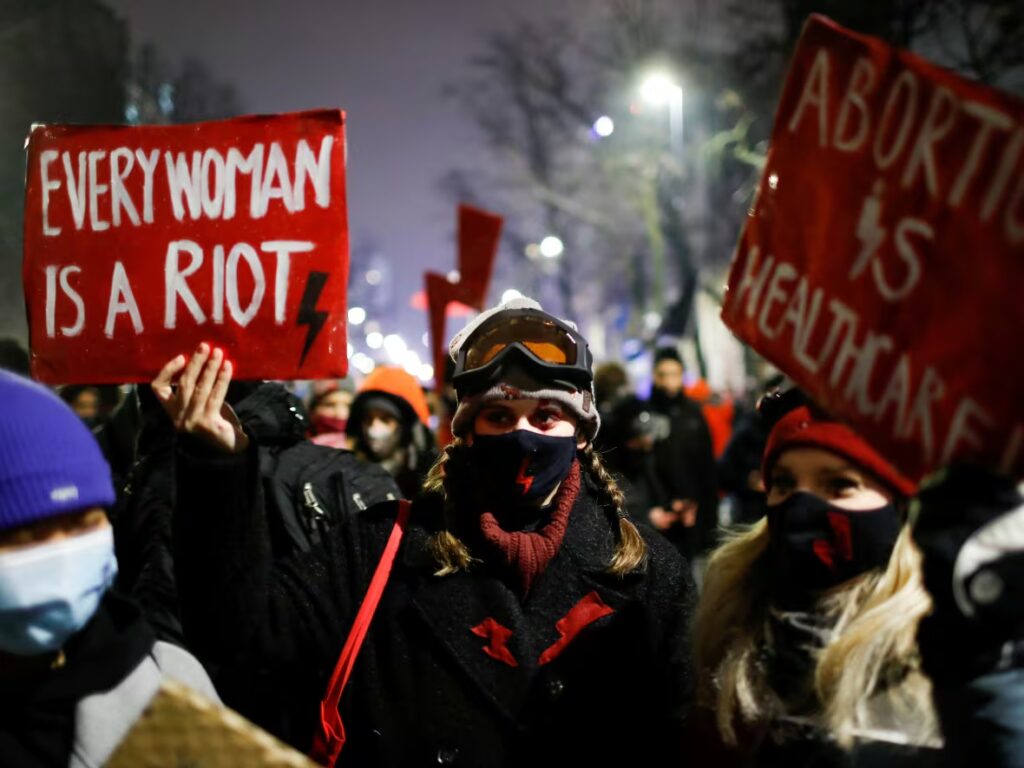Abortion
Pro-Life Laws Do Not Kill Women
Three Polish doctors have been found guilty in connection with the death of a 30-year-old pregnant woman named Izabela, who died of sepsis and became a symbol for massive abortion protests across the nation.
In September 2021, Izabela was admitted to the hospital in Pszyncyna in southern Poland at 22 weeks pregnant; her unborn child had severe developmental defects. She requested an abortion and was denied due to Poland’s pro-life laws. As the BBC reported, “Her family said life-saving care was delayed because the doctors feared breaking abortion laws. An investigation ruled that was not the case, but they were found guilty of directly endangering her life.” In short: Poland’s pro-life laws were not relevant to her death.
Izabela’s death, however, was presented by abortion activists as a direct consequence of pro-life laws, and they used the case to further fuel protests that had begun on October 22, 2020, after the Constitutional Tribunal ruled that legal abortion in the case of disability such as Down syndrome is unconstitutional. One Warsaw protest featured 100,000 people; several turned into riots, with attacks and vandalism against churches. The claim made by the protestors was simple and potent: Pro-life laws kill women.
The Polish protests followed the abortion activist playbook precisely. On October 28th, 2012, Savita Halappanavar died of septic shock brought on by a bacterial infection at a hospital in Ireland. Multiple investigations—including a coroner’s inquest—concluded that she died because of “medical misadventure.” Abortion activists falsely insisted that she had passed away because of being denied an abortion and launched a national campaign with her face as their symbol.
As I detailed in my 2020 book Patriots: The Untold Story of Ireland’s Pro-Life Movement, activists successfully used the Halappanavar case to win the 2018 abortion referendum by persuading Middle Ireland that the 8th Amendment to the Irish Constitution, which protected children in the womb, needed to be repealed to protect other women like her. When the polls seemed to shift towards the pro-life cause, abortion activists hung photos of Halappanavar’s face all over Dublin in the last weeks of the campaign.
Halappanavar did not die because she was denied an abortion, but she did die after she was denied an abortion. This, journalists and activists concluded, was a distinction that must be ignored. The false claim that Halappanavar—and Izabela—died because of pro-life laws could be propagated, and the public could be forced into a false choice between the lives of women and the lives of unborn children. By the time medical investigations proved that the women had died of medical incompetence or error, the abortion activist narrative was already deeply rooted, and the truth was irrelevant.
The three doctors involved in Izabela’s death have paid for their incompetence. One, identified as Andrzej P., was charged with causing involuntary manslaughter, sentenced to 18 months in prison, and banned from practicing medicine for six years. A second, Michael M., was given 15 months in prison and similarly banned from medicine for six years. The third, Krzysztof P., was handed a one-year suspended sentence and banned from medical practice for four years.
Abortion activists, however, are determined to ensure that Izabella’s death remains useful. “No ruling is going to bring Izabela back,” Antonina Lewandowska, national advocacy coordinator for the feminist group Federa, told the BBC. “It’s outrageous the ruling is so mild given the crime presented to the court…The ruling is a good thing, but justice was only partially served. Such a verdict will not resonate within the medical community which is hesitant about performing abortions to say the least.”
Because the investigation concluded that malpractice, not the denial of an abortion, led to Izabela’s tragic death, activists are unhappy with the ruling. They want Izabela to be their Savita Halappanavar. The facts of the case are not relevant—how those facts can be presented is what counts. It is an incredibly effective and powerful propaganda strategy, which is why even objective news articles cite the investigation’s conclusions but hasten to emphasize the abortion aspect of the story.
READ THE REST OF THIS STORY AT THE EUROPEAN CONSERVATIVE








